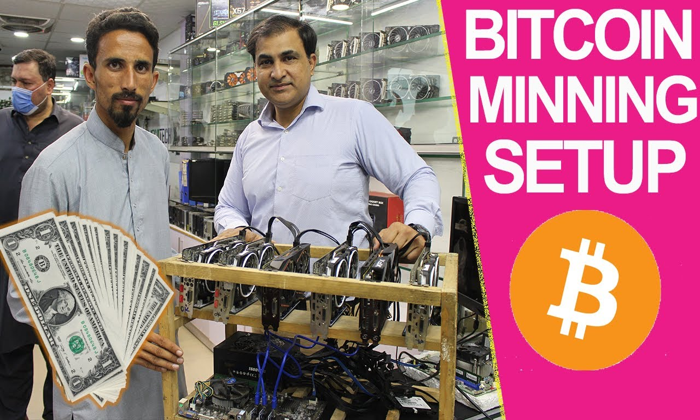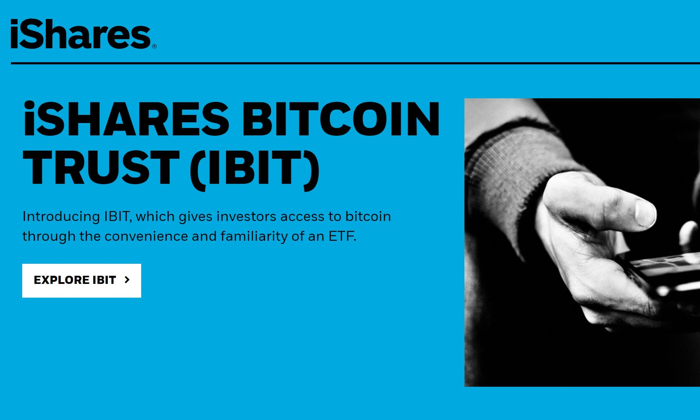Pavel Durov’s recent travel to Dubai has sparked widespread interest, especially following his tumultuous legal battles in France. The Telegram founder successfully won a modification of his bail conditions, allowing him to temporarily leave France and explore opportunities in the UAE. Reports indicate he departed early, reinforcing the narrative that this trip is not just a getaway but a strategic move amidst the ongoing Telegram founder bail conditions that have placed him in the spotlight. As the situation unfolds, many are closely monitoring the implications of Durov’s travel on the ongoing French court Telegram case and the broader landscape of tech and privacy rights. The TON Foundation’s updates further highlight the crypto community’s backing in light of Durov’s legal troubles, underscoring the significance of this chapter in his life.
The recent decision allowing Pavel Durov to travel to Dubai marks an important milestone in his ongoing legal saga, which has captivated many within the tech and crypto communities. As the creator of the popular messaging platform Telegram, Durov has been at the center of a series of contentious legal issues, particularly concerning the lack of content moderation on his platform. His journey to Dubai symbolizes more than just a change of scenery; it reflects the complexities surrounding the enforcement of legal frameworks in the digital age. Amidst his legal challenges, including the serious charges raised against him in France, Durov’s travel has become a focal point for discussions around user privacy and the responsibility of tech innovators. Support from entities like the TON Foundation highlights the collaborative spirit that persists even in times of adversity, as they navigate the intricacies of technology and law.
Pavel Durov’s Temporary Travel to Dubai
Pavel Durov’s recent move to Dubai marks a significant change in his current legal status, as a French court has granted him temporary permission to travel outside of France. This decision comes in the wake of his ongoing detention and legal troubles, following serious charges brought against him by French authorities. The court’s approval to modify his bail conditions reflects a notable shift, allowing Durov to escape the intense scrutiny that has been levied against him since his arrest last August. It’s important to note that Dubai’s regulations around extradition make it a notable destination for those in legal disputes.
In his Telegram post, Durov expressed a broader sentiment regarding innovation and responsibility, hinting at the fears faced by tech innovators when dealing with legal repercussions for how their creations are used. While in Dubai, Durov is expected to take part in strategic discussions and explore partnerships that align with his commitment to privacy and free speech, which have been at the core of his controversial legal battles. This trip could potentially influence future developments for Telegram and its operations.
Legal Context of Durov’s Bail Conditions
Durov’s legal journey has been fraught with complications since his arrest regarding allegations that Beijing-based authorities view as serious violations of law. Initially, when arrested, he faced multiple charges implicating him in organized crime and child exploitation—all stemming from security concerns urged by French officials. The modification of his bail conditions came as a relief, allowing him much-needed freedom while still under judicial care. Durov’s case reflects ongoing tensions between privacy demands from users and the regulatory challenges faced by tech giants.
The bail modification was essential for Durov, considering the weight of the allegations against him. With significant media scrutiny on his operations at Telegram, the decision to stay in France was initially seen as a means to monitor him closely. However, for Durov, being able to travel to Dubai represents not just a reprieve but an opportunity to continue fostering an environment conducive to innovation and privacy-focused development free from external pressures that have clouded his focus in France.
Pavel Durov’s Journey Through Legal Troubles
The legal challenges surrounding Pavel Durov have raised important discussions regarding the responsibility of tech companies in moderating content on platforms like Telegram. Since the allegations emerged last year, the Telegram founder has been in a precarious position, navigating the legal system while attempting to uphold the core principles of free communication and privacy that his platform champions. Durov’s ability to maneuver through these challenges is indicative of his resilience but also highlights the scrutiny tech entrepreneurs face today.
Durov’s case has not only drawn significant media attention but also the interest of fellow tech leaders and advocates for free speech. Commentators from various sectors have criticized the legal actions leading to his arrest, arguing that such moves threaten the foundation of innovation. The unfolding narrative around Durov is emblematic of broader concerns within the tech industry related to personal liability and the implications of new technology use.
Impact of Durov’s Case on Telegram Community
The Telegram community has shown a strong united front regarding Durov’s legal challenges. An open letter from users and supporters condemned the arrest, emphasizing that it was not merely a personal attack against the founder but a broader threat to free speech and privacy—principles that Telegram stands for. The community’s engagement showcases the platform’s role as a bastion for those seeking unfiltered communication.
Critical voices from tech leaders and privacy advocates have turned the spotlight on the potential impact of Durov’s legal situation on Telegram’s operation and future innovations. This collective awareness may lead to further discussions on how platforms can protect their users while navigating legal systems that demand accountability. Support from users remains crucial as Durov embarks on this journey, emphasizing that the community’s cohesion could ultimately influence the outcomes of his legal trials.
TON Foundation’s Response to Durov’s Travel
The TON Foundation welcomed the news of Pavel Durov’s travel to Dubai, emphasizing the importance of this development for the decentralized community it represents. The positive market reaction, with the pricing of The Open Network (TON) seeing a notable increase, showcases the confidence investors and community members have in Durov’s leadership and vision. This announcement sparked further dialogue on the potential for TON to reach new heights in a favorable climate, possibly aided by Durov’s presence in a technology-centric hub like Dubai.
The statement from the TON Foundation highlighted their commitment to standing by Durov, ensuring that his legal troubles do not hinder the foundation’s goals to advance privacy and free speech in the digital age. This supportive stance reinforces the belief that as Durov continues to navigate legal landscapes, he does so with the backing of a dedicated community that aligns with his mission related to Telegram and its stakeholders.
The Future of Telegram Amid Durov’s Challenges
As Pavel Durov embarks on his journey to Dubai, many speculate on the potential implications for Telegram’s future. The messaging platform has been at the forefront of communications for millions, yet its reputation has been challenged amid allegations of negligence and failure to moderate harmful content. Durov’s leadership will be crucial as he seeks to prioritize user safety while ensuring the platform continues to thrive in innovation and accessibility.
With the easing of his bail restrictions, there lies an opportunity for Durov to strategize and envision a pathway that reconciles the app’s operational policies with the legal frameworks under which it operates. Should Durov secure favorable conditions for re-engagement with development teams and stakeholders while in Dubai, Telegram might emerge stronger, redefining its vision amidst adversity.
International Implications of Durov’s Legal Status
Durov’s case transcends national boundaries, highlighting the international implications of corporate governance and individual rights in the tech landscape. The permission for him to travel to Dubai brings forth discussions about jurisdiction, security, and the globalization of tech entrepreneurship. Observers are keenly watching how Durov’s dual citizenships could affect his legal standing as he traverses different legal systems.
The responses from various international entities regarding Durov’s predicament further indicate a growing acknowledgment that tech founders can face disproportionate scrutiny and potential overreach by authorities. Therefore, Durov’s sojourn in Dubai may not only allow him personal freedom but also position him as a pivotal figure in advocating for a balanced approach between innovation and accountability on a global stage.
The Role of Privacy in Durov’s Career
Privacy has always been central to Pavel Durov’s vision for Telegram, shaping the core message of the platform. As he continues to deal with legal issues, his focus on privacy-centric solutions seems even more crucial. Durov’s experiences serve as a reminder that creating a platform that prioritizes user privacy often comes with complex legal ramifications, particularly in countries with strict regulations.
In a world where personal data has become a hot commodity, Durov’s commitment to user privacy amidst adversity may resonate strongly with users. As technology evolves, the clarity of regulatory requirements and the pressures placed on tech entrepreneurs are paramount—not just for Durov’s legacy but for the future of communications technology worldwide.
Final Thoughts on Durov’s Journey and its Significance
Pavel Durov’s journey from legal troubles to temporary freedom in Dubai encapsulates the struggles faced by many in the tech industry today. His case sheds light not only on the personal challenges of a tech entrepreneur but also on the broader implications for innovation in a regulated environment. The ability to travel abroad may bolster his efforts to redefine his role and influence within the tech community.
As Durov stands at this crossroads, his interaction with the international tech landscape through visits and negotiations in places like Dubai could dictate the future trajectory of Telegram. Observers will keenly watch how these developments unfold and possibly reshape the expectations and responsibilities placed on platforms like Telegram, marking a critical phase in Durov’s innovative journey.
Frequently Asked Questions
What are the latest updates on Pavel Durov’s travel to Dubai?
Pavel Durov, the founder of Telegram, recently received permission from a French court to temporarily travel to Dubai. This modification of his bail conditions allows him to leave France for several weeks after facing legal troubles related to charges including complicity in child exploitation and drug trafficking.
How did Pavel Durov’s legal issues affect his travels to Dubai?
Durov’s legal troubles initially restricted his movement after his arrest in France. However, with a modification of his bail conditions granted by a French court, he is now able to travel to Dubai, a destination known for its privacy and lack of extradition agreements.
What led to Pavel Durov’s arrest and how does it relate to his travel plans to Dubai?
Pavel Durov was arrested in France on charges linked to Telegram’s content moderation failures, which allegedly facilitated illegal activities. His recent court-approved travel to Dubai marks a significant shift in his legal situation, allowing him to leave France temporarily amid these challenges.
Can Pavel Durov travel freely to Dubai despite his legal troubles?
While Pavel Durov has been granted permission to travel to Dubai, his freedom of movement is still under judicial supervision in relation to his ongoing legal issues in France. The travel is contingent on the modified bail conditions set by the court.
What implications does Pavel Durov’s travel to Dubai have for the Telegram community?
Durov’s travel to Dubai, following his legal struggles, has been welcomed by the Telegram community. Many see it as a significant step in defending free speech and privacy online. Additionally, the news positively impacted the TON cryptocurrency market, reflecting the community’s support.
How do Pavel Durov’s bail conditions affect his ability to run Telegram while in Dubai?
Despite his travel to Dubai, Pavel Durov is still governed by the conditions of his bail from France, which means his activities, including managing Telegram, may be impacted by these legal restrictions.
Was Pavel Durov’s trip to Dubai confirmed and what are the reactions?
While Pavel Durov’s travel to Dubai has been reported, it has not been officially confirmed by him or Telegram. However, the news has garnered a positive reaction from the crypto community, particularly from the TON Foundation, highlighting support for Durov’s advocacy for privacy and free speech.
| Key Point | Details |
|---|---|
| Court Decision | A French court allowed Pavel Durov to modify his bail conditions, permitting temporary travel. |
| Travel to Dubai | Durov flew to Dubai after receiving court permission, emphasizing his ties to the UAE and the absence of extradition treaties. |
| Legal Background | Durov faced serious charges including complicity in child exploitation and drug trafficking, following his arrest in August. |
| Bail and Restrictions | Released on €5 million bail but initially forbidden from leaving France; conditions were modified on March 13. |
| Impact on Cryptocurrency | Durov’s travel news positively influenced the price of The Open Network (TON), seeing a 20% increase. |
| Community Reaction | The Telegram community, along with figures like Edward Snowden and Elon Musk, criticized Durov’s arrest as an assault on free speech. |
Summary
Pavel Durov Dubai travel marks a significant chapter in the ongoing saga involving the founder of Telegram. After a tumultuous legal battle in France, Durov’s permission to travel to Dubai, a city known for its lenient extradition policies, highlights the complex interplay of international law and digital privacy. Durov’s situation has garnered international attention and sparked discussions surrounding online freedom and the responsibilities of tech innovators in moderating content. As the situation develops, the implications for technology and privacy rights will continue to unfold.
Pavel Durov’s recent travel to Dubai has garnered significant attention, especially in light of his evolving legal challenges in France. As the founder of the popular messaging app Telegram, Durov has been embroiled in legal troubles surrounding allegations of complicity in serious criminal offenses. A French court has reportedly modified his bail conditions, allowing him to leave France temporarily for Dubai—a move that aligns with updates surrounding Telegram founder news and related court cases. This shift comes amidst ongoing discussions about Durov’s responsibilities as a platform leader and raises questions about the implications of his departure in the context of ongoing legal scrutiny. The Telegram founder’s situation highlights a crucial intersection of technology, privacy rights, and international law, capturing the interest of his supporters and critics alike.
The recent excursions of Pavel Durov, known for his role in establishing the instant messaging service Telegram, illuminate a complex landscape of innovation and legal entanglement. This notable figure’s recent permit to travel to Dubai not only marks a significant change in his judicial restrictions but also opens discussions on broader themes of digital freedom and corporate accountability. Following various legal predicaments, including his previous detention by French authorities, the response to Durov’s travels reflects a larger dialogue about the responsibilities of tech entrepreneurs in moderating content on their platforms. As the founder of Telegram continues to navigate his intricate legal battles, the ripple effects of his travel news are felt across the tech community, especially among those following the TON Foundation updates and the implications of Durov’s actions on future entrepreneurial ventures. In a world where privacy and free speech are under constant scrutiny, Durov’s journey serves as a focal point for ongoing debates about the rights of innovators versus the responsibilities they bear.















